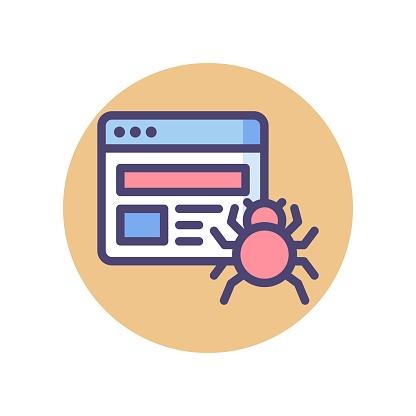
07-Sep-2022 , Updated on 9/7/2022 2:28:46 AM
What are search engine crawlers and how does it work
In this article, we'll look at how search engine crawlers to index content and prioritize pages using keywords. They also use server resources to process and index the content. In short, search engine crawlers are like explorers, following links and prioritizing pages based on keywords.
Web crawlers are like explorers
- Search engine crawlers crawl websites and collect information about them. Crawlers learn about a site by following links from other websites. If a page has no links, a crawler will not be able to find it. In addition, many sites structure their navigation so that it is difficult for search engine crawlers to access the content. This hinders the ability of a site to rank in search results.
- Web crawlers collect meta tags and copy from websites and store them in an index for search engine algorithms to use in future searches. Most major search engines use web crawlers. Google has a main crawler called Googlebot that performs desktop and mobile crawling. It also has several other bots that do other kinds of crawling.
They follow links
Search engine crawlers follow links on the Internet to discover content. This means that you must optimize the links on your web pages so that the crawlers can easily index them. Your link text should contain keywords that are relevant to your web content. Also, make sure that your links are placed on authoritative sites that offer similar content to your own. When a user clicks on a link from a SERP, search engine crawlers will follow them to your web page.
They prioritize pages based on keywords
- Search engine crawlers prioritize pages based on the keywords found on them. They use algorithms to determine which pages are the most relevant to a particular search. For example, if someone types 'how to make an apple crumble,' the results will be very different than if someone searches 'world's heaviest apple.' Google spends years building algorithms to determine which pages are most relevant to a particular search.
- A good strategy should be based on your business' keywords. If you target keywords relevant to your business, search engines will be more likely to see it. Using the correct keywords can help you attract new customers. By using the right keywords, you'll increase your chances of being ranked on top of search engine results.
They require server resources to index content
- Search engine crawlers require server resources to index web content. Depending on the type of web content, this might mean HTTP HEAD requests or examining URLs for certain characters. If the resources are not properly rendered, the crawlers will not understand the content or rank the site appropriately.
- The average age and freshness of web pages are important metrics for web crawlers. However, this average is not directly proportional to the number of pages on a site. Crawlers must find and sort through countless combinations of small scripted changes to find unique content. This requires server resources, which may be expensive.
- Creating a high-performance crawler requires complex system design, efficient I/O, robustness, and manageability. Since web crawlers are such a central part of search engines, details of their algorithms and architecture are usually considered trade secrets. Many major search engines do not publish their ranking algorithms because of spam concerns.
They are pirates
- The search engine crawler is like a pirate - it follows links on pages to add content to its search index. But just like the pirate, a search engine is only as good as its treasure. So it is important that the content of its index is up to scratch. Fortunately, Google has taken several steps to combat piracy online.
- Firstly, Google is doing its part to prevent piracy by deleting the autocomplete results of websites that violate DMCA guidelines. Furthermore, it highlights legitimate search results when someone types in an illegitimate search term. These results are designed to encourage users to pay for the content they seek. Likewise, pirates target websites that offer content for free, such as torrent websites.

SEO and Content Writer
I am Drishan vig. I used to write blogs, articles, and stories in a way that entices the audience. I assure you that consistency, style, and tone must be met while writing the content. Working with the clients like bfc, varthana, ITC hotels, indusind, mumpa, mollydolly etc. has made me realized that writing content is not enough but doing seo is the first thing for it.
Join Our Newsletter
Subscribe to our newsletter to receive emails about new views posts, releases and updates.
Copyright 2010 - 2026 MindStick Software Pvt. Ltd. All Rights Reserved Privacy Policy | Terms & Conditions | Cookie Policy